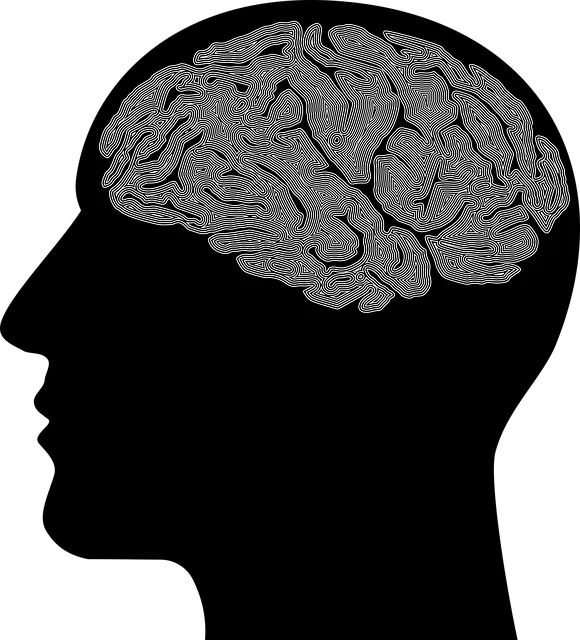The Westminster Kaiser Permanente mental health center, led by its owner, is revolutionizing mental wellness care through comprehensive self-assessment tools and tech-driven solutions. These assessments, personalized based on lifestyle, environment, and history, facilitate early detection of mental health issues and targeted interventions like stress management techniques. The center prioritizes patient-provider connections, cultural sensitivity, and community outreach to ensure accessible, effective care for all, with a focus on continuous improvement using evidence-based practices and Mind Over Matter principles.
Mental wellness self-assessment tools play a pivotal role in early intervention, empowering individuals to take charge of their psychological well-being. This article explores the crucial need for personalized assessments and delves into innovative approaches like those implemented by Westminster Kaiser Permanente mental health center by owner. We examine strategies for designing effective evaluation protocols, the integration of technology through digital platforms, and the importance of continuous improvement based on user feedback. By leveraging these methods, we can enhance well-being and improve accessibility to care.
- Understanding the Need for Personalized Mental Wellness Assessments
- The Role of Self-Assessment Tools in Early Intervention
- Designing Effective Mental Health Evaluation Protocols
- Integrating Technology: Digital Platforms for Accessible Care (Focus on Westminster Kaiser Permanente's approach)
- Enhancing Well-being: Continuous Improvement and User Feedback Loop
Understanding the Need for Personalized Mental Wellness Assessments

In today’s fast-paced world, mental wellness is an integral aspect of overall health that often goes overlooked until it becomes a crisis. Recognizing this growing need, institutions like the Westminster Kaiser Permanente mental health center by owner have taken the initiative to develop personalized self-assessment tools. These assessments cater to the unique experiences and challenges faced by individuals, ensuring a more accurate understanding of their mental wellness state. Unlike generic questionnaires, these tailored tools consider various factors, including lifestyle, environment, and personal history, to offer insightful evaluations.
By prioritizing personalized mental health assessments, we can foster a culture of proactive care. This approach allows for early detection of potential issues, enabling individuals to seek appropriate support and implement effective coping strategies. Moreover, it facilitates the development of targeted interventions like stress management techniques and resilience-building programs, which are crucial components of public awareness campaigns.
The Role of Self-Assessment Tools in Early Intervention

Self-assessment tools play a pivotal role in early intervention for mental wellness, as they enable individuals to recognize potential issues and seek help proactively. These tools are particularly valuable in settings like the Westminster Kaiser Permanente mental health center by owner, where access to healthcare is crucial but not guaranteed. By empowering patients with the means to assess their own mental health, these assessments can facilitate timely interventions, which are often more effective than waiting for symptoms to escalate.
Early identification of mental health concerns through self-assessment tools can significantly impact treatment outcomes, especially when coupled with culturally sensitive practices. For instance, a tool designed with Cultural Sensitivity in Mental Healthcare Practice in mind can help bridge the gap between diverse patient populations and healthcare providers, ensuring that Mood Management strategies are tailored to individual cultural backgrounds and beliefs. Additionally, implementing Community Outreach Program Implementation initiatives alongside self-assessment tools can further widen access to mental wellness resources among underserved communities.
Designing Effective Mental Health Evaluation Protocols

Designing effective mental health evaluation protocols is a multifaceted process that involves creating tools to accurately assess an individual’s mental wellness. At the Westminster Kaiser Permanente mental health center by owner, we prioritize evidence-based practices and tailored interventions. Our approach leverages advanced assessment methods combined with healthcare provider cultural competency training to ensure accurate diagnoses and personalized treatment plans.
By integrating Confidence Boosting techniques into our evaluation protocols, we empower individuals to actively participate in their mental wellness journey. Moreover, we offer Stress Management Workshops Organization as a complementary service, fostering a supportive environment that enhances therapeutic outcomes. These comprehensive strategies not only improve individual well-being but also contribute to the overall success of our mental health center’s programs.
Integrating Technology: Digital Platforms for Accessible Care (Focus on Westminster Kaiser Permanente's approach)

Westminster Kaiser Permanente mental health center by owner has pioneered innovative approaches to delivering accessible care through technology integration. Their digital platforms are designed with Mind Over Matter Principles in mind, aiming to make emotional regulation and trauma support services readily available to a wider audience. By leveraging online tools, the center offers virtual counseling sessions, digital mood tracking, and interactive resources for self-care, ensuring that individuals can access support from the comfort of their homes.
This tech-driven approach not only expands reach but also enhances accessibility, particularly for those who may face barriers such as transportation or time constraints. The center’s commitment to integrating technology reflects a growing trend in mental health care, where digital solutions play a pivotal role in supporting emotional well-being. This shift towards digital platforms promises to revolutionize trauma support services and foster a more inclusive environment for seeking and maintaining mental wellness.
Enhancing Well-being: Continuous Improvement and User Feedback Loop

At the Westminster Kaiser Permanente mental health center by owner, we understand that enhancing well-being is an ongoing process that requires continuous improvement and a robust user feedback loop. Leveraging the Mind Over Matter Principles, we strive to develop self-assessment tools that not only identify areas of need but also provide tailored strategies for growth and resilience. By incorporating Social Skills Training and Stress Management Workshops within our organization, we ensure that our tools are based on evidence-based practices, fostering a supportive environment for all users.
This iterative approach allows us to refine our assessments regularly, ensuring they remain relevant and effective in addressing the evolving mental health needs of our community. User feedback plays a pivotal role in this process, enabling us to make data-driven decisions that enhance the accuracy and usability of our self-assessment tools. Through ongoing engagement with our users, we aim to create a holistic framework that supports mental wellness, empowering individuals to take control of their emotional well-being.
Mental wellness self-assessment tools are crucial for personalized, early intervention strategies. By integrating technology, as demonstrated by Westminster Kaiser Permanente’s innovative digital platforms, we can significantly enhance accessibility to care. Continuous improvement, guided by user feedback loops, ensures these tools remain effective and tailored to individual needs. Embracing these advancements is a step towards fostering better mental health outcomes in our communities.






